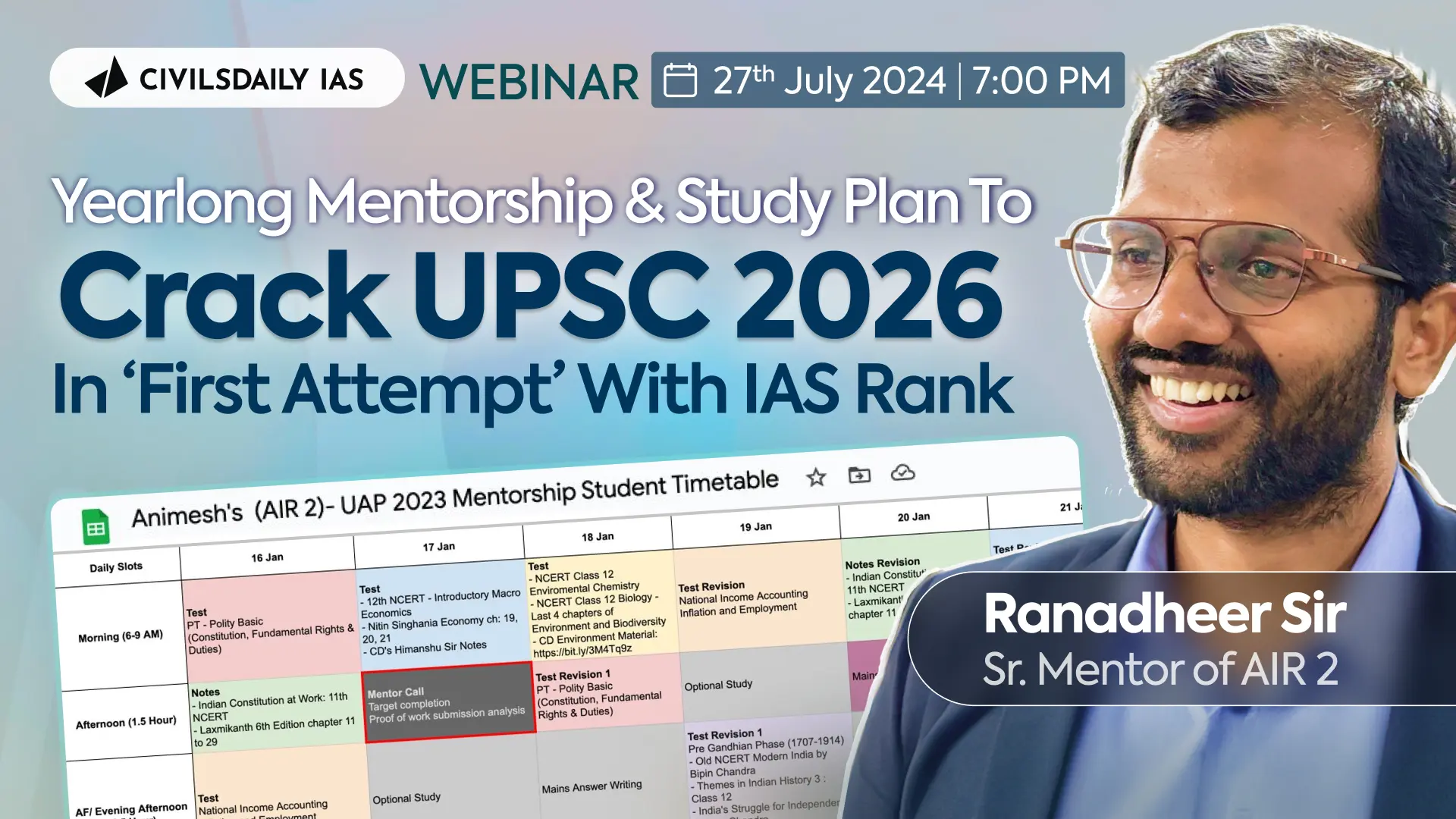Note4Students
From UPSC perspective, the following things are important :
Prelims level: world university rankings
Mains level: Issues with the autonomy of the universities
Context
- It is sad but not surprising that none of India’s institutions of higher education appears in the list of top 100 universities of the world.
Background: Ranking of the of the Indian Institutes
- According to the QS World ranking: The 2023 edition of the Quacquarelli Symonds (QS) world university ranking reckons that three of India’s higher educational institutions amongst the top 200 of the World. Another three are counted among the top 300 whereas two more in the top 400.
- As per the Times Higher education Ranking: The Times Higher Education (THE) ranking places only one Indian institution among the top 400 of the worlds.
- Academic rankings: Rankings are the same with the Academic Ranking of World Universities (ARWU). Barring one of the most eminent public-funded deemed universities of the country, all the rest are Institutions of National Importance (INIs) the Indian Institutes of Technology (IITs), to be specific.
Why other universities reflect poor performance than IITs and INIs?
- IITs have more autonomy: IITs are not only better funded but also generally self-governed, enjoying a greater degree of autonomy as they fall outside the regulatory purview of the University Grants Commission (UGC) and the All-India Council for Technical Education (AICTE).
- Strict UGC regulations: Funded through the University Grants Commission (UGC), universities are all subject to a very strict regulatory regime.
- Micro-management of universities functioning: Abiding by UGC regulations and AICTE guidelines, encompasses almost all aspects of their functioning be it faculty recruitment, student admission and the award of degrees. In many cases, they are micro-managed by the regulatory authorities.
- Very less autonomy to UGC affiliated Universities: Most of the universities have become so comfortable with the practice that they rarely assert their autonomy.
- Ranking on basis of compliance: Central universities in the country are also ranked on the basis of their ‘obedience’ to regulatory compliances. Even in the academic domain, many of them are comfortable in publicly stating that they have adopted the model curricula, pedagogy and syllabi prescribed by the regulatory bodies, even though the same may have been only indicative.
What are the good practices of best universities around the world?
- Importance to autonomy: The best universities in the world are continuously sensitized about the importance of their autonomy and are trained and enabled to make their own decisions.
- University autonomy tool for comparison: The European University Association (EUA), for example, prescribes a ‘university autonomy tool’ that lets each member university compare its level of autonomy vis-à-vis the other European higher education systems across all member countries.
- Four specific autonomies for ranking: By focusing on four autonomy areas (organizational, financial, staffing, and academic) the EUA computes composite scores and ranks all the countries in Europe.
What are the efforts taken to improve the universities performance?
- National education policy 2020: A large number of commissions and committees, including the national policies on education (including the National Education Policy 2020), have highlighted the need for higher education autonomy. The new education policy seeks to completely overhaul the higher education system, and to attain this objective, repeatedly emphasizes the need for institutional autonomy.
- Academic and administrative autonomy: The NEP regards academic and administrative autonomy essential for making higher education multi-disciplinary, and that teacher and institutional autonomy are a sine qua non in promoting creativity and innovation.
- Independent board of management: The policy considers a lack of autonomy as one of the major problems of higher education and promises to ensure faculty and institutional autonomy through a highly independent and empowered board of management which would be vested with academic and administrative autonomy.
- Light but tight regulation: It argues for a ‘light but tight’ regulatory framework and insists that the new regulatory regime would foster a culture of empowerment. Further, it goes on to say that by relying on a robust system of accreditation, all higher education institutions would gradually gain full academic and administrative autonomy.
Conclusion
- Universities in India have been losing their autonomy. In the two years since the approval, announcement, and gradual implementation of the NEP, universities in India today are far less autonomous than earlier. If India wants to be leader in knowledge and patent economy then its universities must be freed from clutches of unreasonable regulations.
Mains Question
Q. Why Indian universities does poor on world ranking of universities? Autonomy of university is keystone to improve the performance of universities. Examine.
Click and Get your FREE copy of Current Affairs Micro notes
Get an IAS/IPS ranker as your 1: 1 personal mentor for UPSC 2024




With the increasing demand for online learning, universities are facing the challenge of delivering quality education while ensuring academic integrity. One solution to this is Proctoredu, an online exam proctoring platform that provides an effective way to monitor students during exams.
Proctoredu has several key features that make it an ideal solution for universities. Firstly, it is browser-based and requires no extensions or plugins to be installed, making it easy to use and accessible to all students. Additionally, it offers multi-device support, meaning that students can use any device to take the exam.
Another important feature is the use of the smartphone camera for 360° view, which ensures that students cannot cheat during the exam. Finally, Proctoredu offers fast white-label integration, making it easy to customize the platform to the university’s branding.
By giving more autonomy to universities through platforms like Proctoredu, they can deliver quality education online while ensuring academic integrity. Visit https://proctoredu.com/ to learn more about how Proctoredu can benefit your institution.